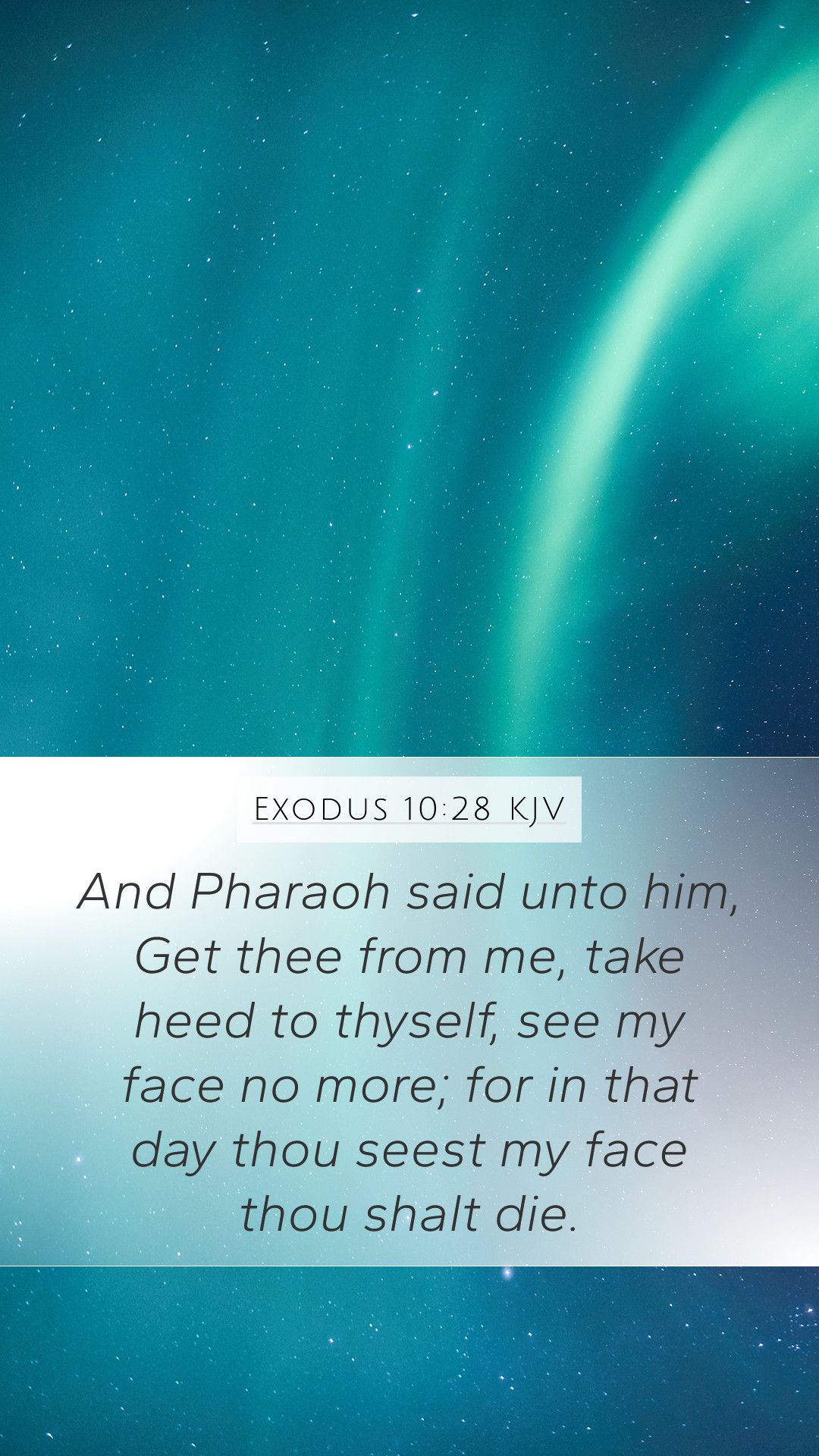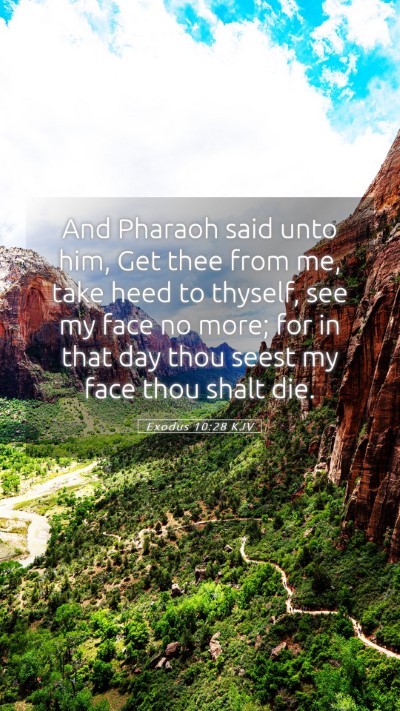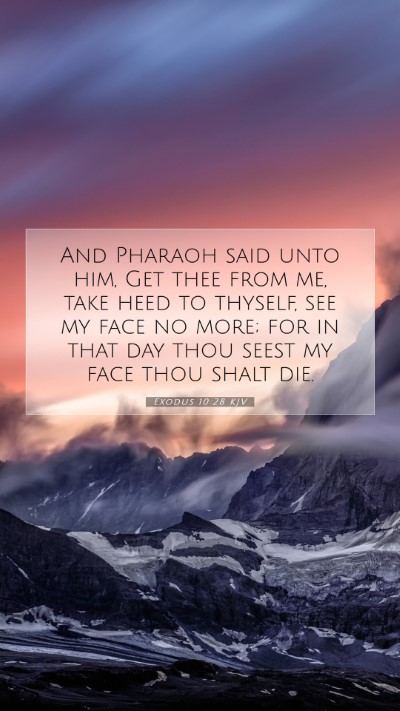Understanding Exodus 10:28 - Bible Verse Interpretation
The verse Exodus 10:28 states:
“And Pharaoh said unto him, Get thee from me, take heed to thyself, see my face no more; for in that day thou seest my face thou shalt die.”
This passage, part of the plagues narrative, captures a crucial moment in the interaction between Moses and Pharaoh, symbolizing the escalating tension in their relationship. The following insights derived from renowned public domain commentaries provide a comprehensive understanding of this scripture:
Exegesis and Contextual Analysis
Context of the Plagues: Exodus 10:28 occurs within the context of the final plagues in Egypt, where the severity of God’s judgments increases as Pharaoh continues to harden his heart against God's commandments.
- Historical Significance: Pharaoh’s harsh response signifies his ultimate rejection of Israel’s God, which leads to dire consequences not only for himself but also for his entire nation.
- Character Study: This statement reveals Pharaoh’s arrogance and pride, attributing power to himself rather than acknowledging God's sovereignty.
Commentary Insights
Matthew Henry's Commentary:
Henry views Pharaoh's command as an epitome of his hardened heart. He notes how Pharaoh, refusing to submit to God’s will, escalates the conflict. This reflects a general theme of disobedience that leads to God's persistent interventions.
Albert Barnes' Notes:
Barnes elaborates on the gravity of Pharaoh's words, indicating that he is attempting to intimidate Moses through threats, reflecting his desperation. This moment is pivotal as it highlights Pharaoh's turning point, where he realizes the seriousness of the situation yet remains unyielding.
Adam Clarke's Commentary:
Clarke discusses the implications of Pharaoh's threat, emphasizing the fear of death that Moses may have felt, yet Clarke suggests Moses' steadfastness showcases his faith and commitment to fulfilling God’s mission regardless of threats.
Theological Reflections
This verse draws attention to various theological themes:
- Divine Sovereignty: The event illustrates God's supremacy over earthly rulers, emphasizing that no human authority can withstand God’s commands.
- Human Defiance: Pharaoh’s refusal to heed God's warnings serves as a cautionary tale about the dangers of pride and rebellion against divine authority.
- Judgment and Mercy: Even in judgment, there is an element of mercy. God continues to reach out to Pharaoh, showing patience despite Pharaoh's hardness.
Application for Today
This verse holds profound implications for contemporary readers:
- Self-Reflection: Individuals are urged to consider areas in their lives where they may be hardening their hearts against God’s guidance.
- Faithfulness in Adversity: Just as Moses stood firm in the face of Pharaoh's threats, believers today are encouraged to remain steadfast in their faith despite opposition.
Cross-References
This verse connects with several other scriptural passages:
- Exodus 5:2 - Pharaoh’s initial denial of God’s authority.
- Exodus 7:13 - Pharaoh's heart was hardened.
- Romans 9:17 - God raises Pharaoh for the demonstration of His power.
Conclusion
In summary, Exodus 10:28 serves as a powerful reminder of the complexities of human will in relation to divine purpose. It warns of the consequences of defiance against God while encouraging faithfulness amidst adversity. By studying this passage and its context through reliable biblical exegesis and commentary, one gains a richer understanding of Scripture that can be applied to daily life.


